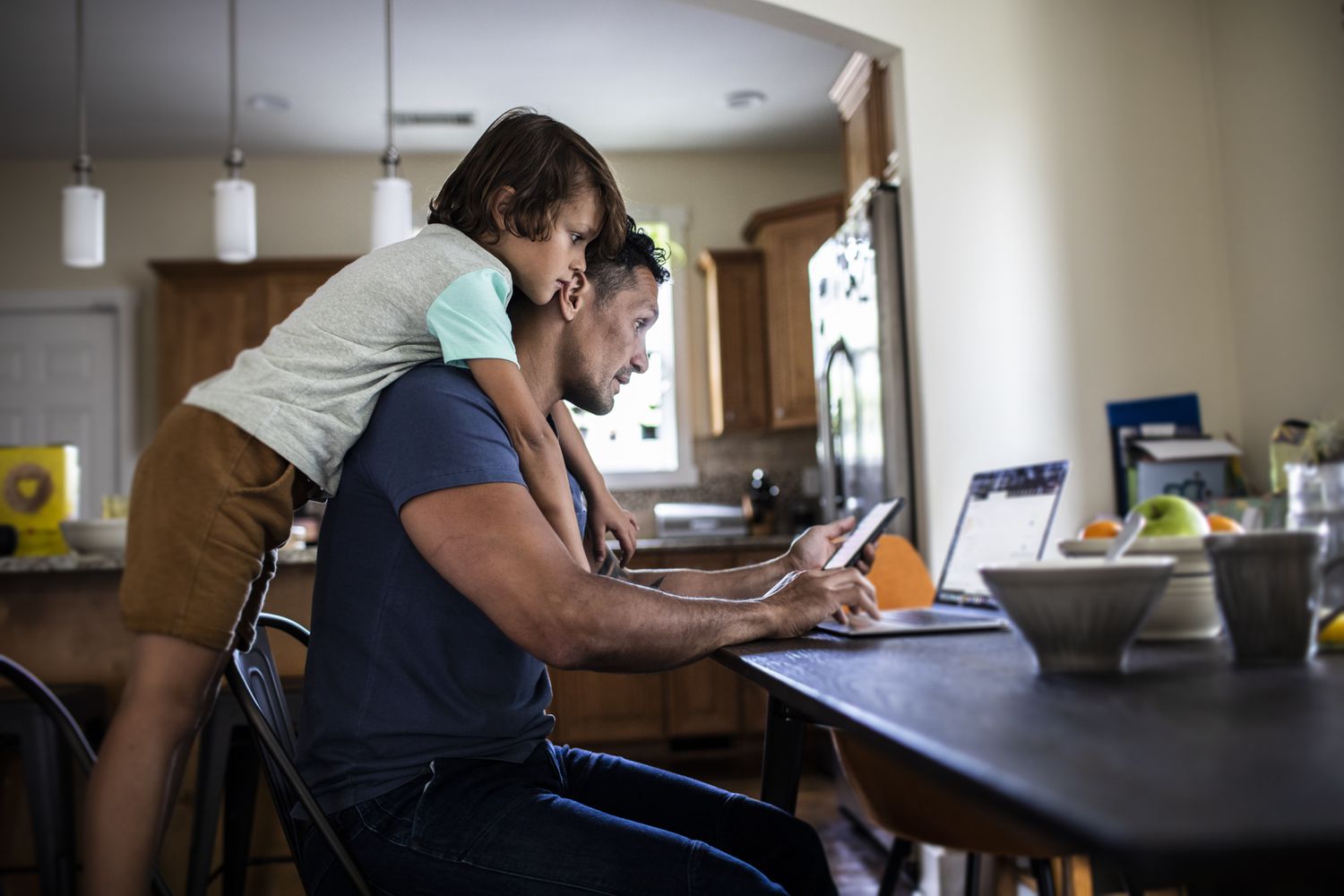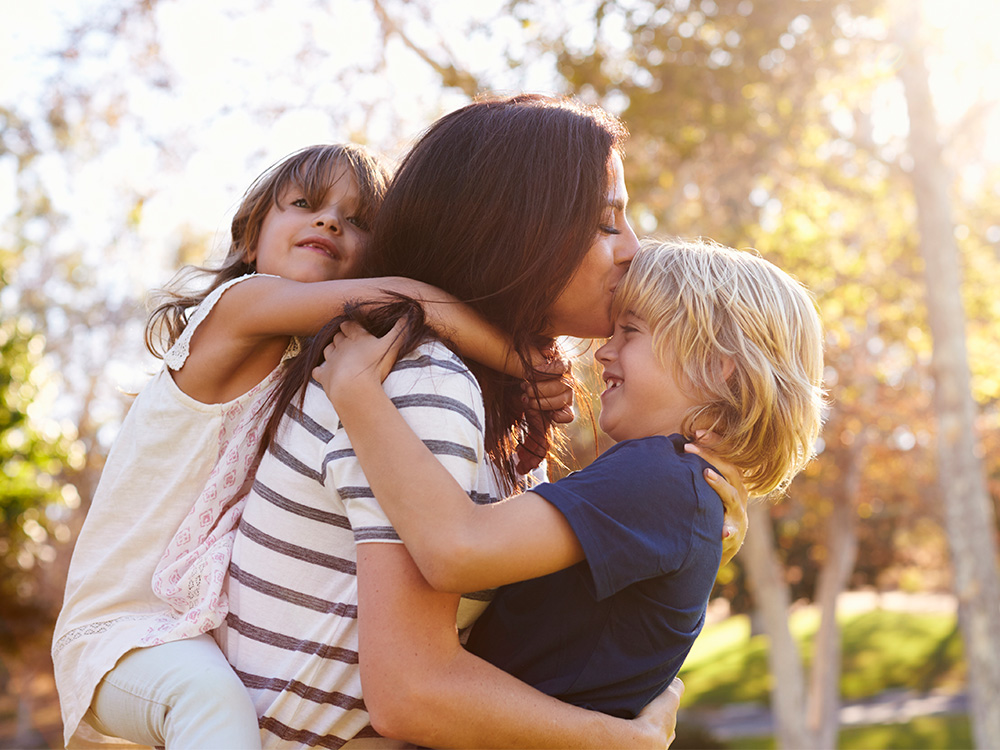Parenting Siblings Post Bereavement: Essential Tips
Parenting siblings post bereavement involves prioritizing open communication, emotional support, routines, and sibling bonding. Encourage honest conversations to understand their feelings. Create a safe space for them to express emotions without judgment. Establish stability through routines and predictability. Validate their experiences and offer comfort. Support individual needs by respecting their coping mechanisms. Foster sibling bonding with shared activities. Practice self-care to better support them. Remember, these essential tips can guide you through this challenging time with compassion and understanding.
Key Takeaways
- Encourage open communication to understand each sibling’s emotions and concerns.
- Establish routines for stability and predictability in their grieving process.
- Seek professional support like grief counseling or family therapy for healthy coping.
- Create a safe space for emotional healing and expression without judgment.
- Encourage sibling bonding through shared activities and open conversations.
Communication Is Key

To navigate the challenging journey of parenting siblings post bereavement, prioritize open and honest communication with your children. Vital listening is essential in understanding your children’s emotions and needs. Create a safe space where they feel comfortable expressing themselves without judgment. Encourage them to share their thoughts, fears, and concerns, and validate their feelings to build trust and strengthen your bond.
Important conversations are the foundation of effective communication. Be transparent with your children about the loss your family has experienced, using age-appropriate language to explain the situation. Answer their questions truthfully and reassure them that it’s okay to feel sad, confused, or angry. By being open and honest, you show your children that their emotions are valid and that you’re there to support them through this difficult time.
Encourage Open Expression
Create a nurturing environment where your children feel safe to express their thoughts and emotions freely after experiencing a loss. The grieving process can be challenging, especially for siblings who may have different coping strategies and sibling dynamics. Encouraging open expression is crucial in helping them navigate through their emotions and support each other during this difficult time.
Allow your children to talk about their feelings without judgment. Validate their emotions and let them know it’s okay to feel sad, angry, or confused. By fostering a safe space for emotional expression, you can help them process their grief and strengthen their bond as siblings.
Engage in activities that promote sharing and open communication, such as family discussions or creating memory books together. Encouraging them to express themselves creatively through art or writing can also be therapeutic.
Establish Routine and Stability
Establishing a consistent routine and providing stability can play a pivotal role in supporting siblings through the grieving process after experiencing a loss. Consistent schedules can offer a sense of predictability and security during a time of upheaval. By establishing routines, you create a familiar structure that can help siblings feel grounded and secure as they navigate their emotions.
During this challenging time, try to maintain regular meal times, bedtime routines, and activities that the siblings enjoy. Consistency in daily schedules can provide a sense of normalcy and help in coping with the loss they’ve experienced. Encouraging siblings to engage in familiar activities can also offer them a much-needed sense of comfort and routine.
Incorporating rituals or traditions that were meaningful to the family before the loss can also help siblings feel connected to their past and create a sense of continuity. By establishing routines and maintaining consistent schedules, you can provide a stable environment that supports siblings as they process their grief.
Provide Comfort and Reassurance

You can offer comfort and reassurance to your grieving children by being there for them emotionally, letting them express their feelings without judgment, and assuring them that their emotions are valid.
By validating their experiences and providing a stable environment, you can help them navigate the difficult emotions that come with loss.
Establishing routines and stability will further support them in their grieving process.
Offer Emotional Support
Providing a safe and nurturing environment where siblings feel supported and loved can greatly aid in their emotional healing process post bereavement.
Sibling bonding plays a pivotal role in offering emotional support during challenging times. Encouraging siblings to engage in shared activities can foster a sense of connection and unity, helping them navigate their grief together.
Coping strategies such as talking openly about their feelings, creating new routines, or even just spending quality time together can be beneficial in processing their emotions. By actively participating in these shared activities, siblings can find comfort in each other’s presence and build a support system within the family unit.
It’s essential to create a space where siblings feel heard, understood, and valued, reinforcing the idea that they aren’t alone in their grief. Through emotional support and shared experiences, siblings can lean on each other for strength and solace as they navigate the complexities of bereavement.
Validate Their Feelings
As siblings navigate the complexities of bereavement, validating their feelings by providing comfort and reassurance is an essential aspect of their emotional healing process.
It’s vital to acknowledge the range of emotions your siblings may be experiencing. Grief can manifest differently in each individual, so taking the time to listen attentively and validate their feelings can offer much-needed support.
Let them know that whatever they’re feeling is valid and understandable. Reassure them that it’s okay to express their emotions and that you’re there to support them through this difficult time.
Provide Stability and Routine
During times of bereavement, establishing stability and routine can offer comfort and reassurance to siblings grappling with the complexities of grief. Consistent routines and predictable schedules provide a sense of normalcy amidst the challenges of loss, helping children feel grounded and secure in their environment.
By maintaining familiar rituals such as bedtime routines, meal times, or weekly traditions, you create a structured framework that offers emotional stability during a time of adjustment.
Children often find solace in the predictability of their daily lives, especially when dealing with the uncertainty that comes with loss. Establishing a secure environment through consistent routines can help alleviate anxiety and promote a sense of safety for siblings adapting to their grief journey together.
Encouraging open communication and being present to address their needs within this structured routine can further reinforce feelings of stability and reassurance during this challenging time. Remember, small gestures of continuity can have a significant impact on helping siblings cope with their loss and adjust to their new reality.
Address Individual Needs
You should consider creating personalized support plans for each sibling, taking into account their unique needs and feelings.
Encouraging open communication can help them express their emotions and concerns, fostering a sense of understanding and connection within the family.
Remember to respect and validate the differing coping mechanisms that each child may exhibit, as everyone processes grief in their own way.

Personalized Support Plans
Crafting personalized support plans tailored to each sibling’s unique needs and coping mechanisms is vital in fostering their emotional healing journey after experiencing a significant loss.
When designing these plans, it’s essential to take into account personalized therapy options and create customized support plans that cater to individual preferences and emotional requirements. Personalized therapy options may include one-on-one counseling, group therapy sessions, art therapy, or even activities like journaling or mindfulness exercises, depending on what resonates best with each sibling.
To create effective customized support plans, start by engaging in open and honest conversations with each sibling to understand their feelings, concerns, and preferences. Encourage them to express themselves freely and without judgment, allowing you to tailor the support plan to their specific needs.
Encourage Open Communication
Encouraging open communication within the family dynamic post bereavement is essential to address each sibling’s individual needs effectively. The healing process after losing a loved one can be challenging, and family dynamics play an important role in how each sibling copes.
By fostering an environment where siblings feel safe to express their thoughts and emotions, parents can help them navigate through their grief. Encouraging open communication allows each sibling to share their feelings, concerns, and needs, promoting a sense of understanding and support within the family unit.
During this time, it’s important to actively listen to each sibling, validate their emotions, and provide reassurance. By acknowledging and respecting their individual experiences, parents can help facilitate the healing process for each child.
Family dynamics may shift after a loss, and fostering open communication can strengthen the bond between siblings as they navigate this challenging time together. Remember, every child copes differently, and by encouraging open dialogue, parents can create a supportive environment where each sibling’s unique needs are recognized and addressed.
Respect Differing Coping Mechanisms
Understanding and respecting the unique coping mechanisms of each sibling is essential in addressing their individual needs post bereavement. Coping strategies vary greatly among individuals, even within the same family, due to differences in personality, age, and past experiences. It’s important to acknowledge and support these differences in coping mechanisms to help each sibling navigate their grief process effectively.
Sibling dynamics can also play a significant role in how each child copes with the loss. While one sibling may find solace in spending time alone, another may seek comfort in being surrounded by family members. By recognizing and respecting these varying coping strategies, you can create a supportive environment that caters to each child’s specific needs.
Moreover, understanding and respecting differing coping mechanisms can strengthen family relationships during this challenging time. By validating each sibling’s unique way of grieving, you can foster a sense of understanding and empathy among family members. This, in turn, can help siblings support each other and navigate their grief journey together.
Seek Professional Support

Consider engaging the support of a trained professional to navigate the complexities of parenting siblings post bereavement. Grief counseling can provide a safe space for both you and your children to express emotions, process grief, and learn healthy coping strategies. A professional counselor can offer specialized techniques to help siblings understand and navigate their feelings of loss, guilt, or confusion.
Family therapy is another valuable resource that can help strengthen family bonds, improve communication, and provide a platform for everyone to express their thoughts and concerns openly.
Seeking professional support doesn’t mean you’re incapable of handling the situation; rather, it shows your commitment to ensuring the well-being of your family during this challenging time. A trained therapist can offer guidance tailored to your family’s specific needs, fostering a supportive environment where everyone feels understood and validated.
Foster Sibling Bonding
You can foster sibling bonding by encouraging shared activities that create opportunities for connection and fun.
Open communication is key – make space for siblings to express their feelings and thoughts openly and honestly.
Encourage Shared Activities
To enhance sibling bonding following a bereavement, promoting shared activities among children can be a valuable strategy. Bonding through hobbies that both siblings enjoy can create a strong foundation for their relationship. Encouraging teamwork in activities such as building puzzles, baking, or playing sports can foster collaboration and communication between siblings.
Engaging in shared hobbies allows siblings to connect on a deeper level, providing them with a sense of companionship during a challenging time. Whether it’s painting together, gardening, or even engaging in a shared interest like reading, these activities can offer a sense of normalcy and joy in each other’s company.
Support Open Communication
Encouraging open communication between siblings can deeply strengthen their bond and provide a supportive foundation for maneuvering the complexities of bereavement together. Vital listening plays an important role in this process. Giving each sibling the space to express their thoughts and feelings without judgment fosters understanding and empathy.
Encourage honest conversations where siblings can openly share their emotions, fears, and uncertainties. During this challenging time, it’s critical to create a safe environment where siblings feel comfortable discussing their grief and supporting each other. Validate their feelings and let them know it’s acceptable to express themselves openly.
Promote Mutual Understanding
Promoting mutual understanding between siblings is essential for fostering a strong and resilient bond after experiencing a loss. Sibling dynamics can shift greatly in the face of bereavement, and it’s important to navigate these changes with empathy and patience.
Encouraging open discussions about feelings, memories, and fears can help siblings support each other through the grieving process. Acknowledge that each sibling may be coping differently and offer mutual support in ways that are meaningful to them.
Finding shared activities or rituals that honor the memory of the lost loved one can also strengthen the sibling bond. This could involve creating a memory box together, planting a tree in their memory, or simply spending quality time reminiscing about the good times.
Create Meaningful Rituals

Consider incorporating meaningful rituals into your family’s routine to help your children cope with their grief and bond with each other after the loss of a parent.
Creating meaningful traditions and bonding activities can provide a sense of stability and comfort during this difficult time. Healing rituals, such as lighting a candle in memory of your loved one on special occasions or sharing stories about them before bedtime, can help your children express their emotions and keep the memory of your late partner alive in your home.
Engaging in shared experiences, like planting a tree in the backyard in honor of their parent or cooking their favorite meal together every week, can create lasting memories and strengthen the sibling bond. These rituals not only offer a sense of connection but also provide a safe space for your children to grieve and support each other through the healing process.
Practice Self-Care as a Parent
Taking care of yourself as a parent is essential to effectively supporting your children through the grieving process. Prioritizing self-care isn’t a luxury; it’s a necessity during this challenging time. Remember, you need to be emotionally and physically well to be there for your children.
Setting boundaries is vital. It’s okay to ask for help or take a break when you need it. Make time for activities that recharge you, whether it’s exercise, reading, or spending time with friends. Self-care isn’t selfish; it’s a way to guarantee you can continue to be a strong pillar of support for your children.
Try to maintain a healthy routine, including proper nutrition, exercise, and enough sleep. Seek support from friends, family, or a therapist if needed. Remember, by taking care of yourself, you’re teaching your children the importance of self-care and resilience.
Allow Space for Healing
To support your children through the grieving process, creating a space for healing is vital. As siblings navigate the complex emotions following a loss, it’s important to allow room for the healing process to unfold naturally.
Encouraging open communication within sibling relationships can foster understanding and provide a support system for each other.
Each child copes with grief differently, so acknowledging and respecting their individual needs is paramount. Some may find solace in talking about their feelings, while others may prefer to reflect quietly. By recognizing and accommodating these coping mechanisms, you can help your children feel supported in their unique grieving journey.
Moreover, promoting activities that promote healing, such as creating memory boxes together or starting new traditions, can aid in the healing process.
Frequently Asked Questions
How Can I Help Siblings Deal With Survivor’s Guilt?
To help siblings cope with survivor’s guilt, encourage open communication, validate their feelings, and suggest therapeutic activities like journaling or art therapy. Remind them it’s normal to feel this way and offer ongoing support.
What Activities Can Siblings Do to Honor the Deceased?
To honor the deceased, engage in creative tributes like crafting memory keepsakes together. Establish family rituals that symbolize remembrance, such as planting a tree in their memory or lighting candles on special occasions. These meaningful gestures foster healing and connection.
Is It Normal for Siblings to Have Different Grief Timelines?
It’s normal for siblings to have different grief timelines. Everyone navigates grief stages uniquely. Encourage open communication, offer sibling support, and explore coping mechanisms together. Understanding each other’s journeys can strengthen your bond during this challenging time.
How Can I Support Siblings Who Struggle With Anger?
When supporting siblings struggling with anger, remember coping strategies like deep breathing and journaling. Encourage open communication to express feelings. Offer anger management techniques like counting to ten. Show empathy and provide sibling support during this challenging time.
When Should I Involve Siblings in Decision-Making After Loss?
When deciding on involvement post-loss, consider communication boundaries. Emotional support is key. Tailor decision-making to age-appropriate levels. Family therapy can aid in understanding and healing dynamics. Engage siblings gradually, ensuring they feel heard and supported.
Conclusion
Remember, parenting siblings after a loss can be challenging, but with open communication, stability, and individualized support, you can help your children navigate their grief and bond together.
By creating a safe and loving environment, encouraging expression and self-care, and allowing space for healing, you’re providing your children with the tools they need to cope and grow stronger together.
Your love and support will guide them through this difficult time.

Hey there! 👋 I’m a proud mom and passionate writer, sharing my parenting journey. 📝 Join me as I navigate the ups and downs of motherhood, offering tips, advice, and a sprinkle of humor along the way. 🌟







